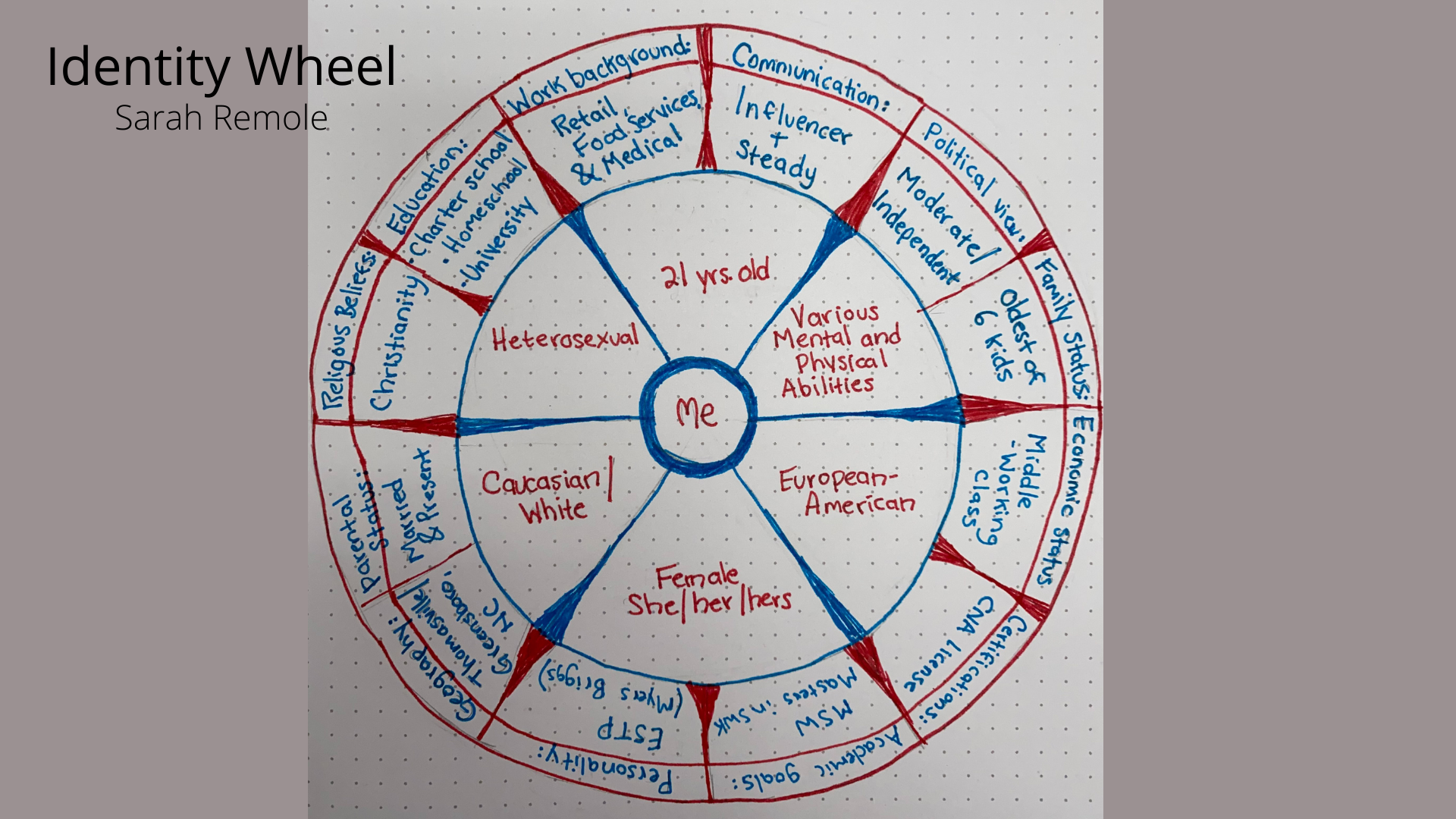Identity Project Part 2
Identity within Socialization
Overall, the majority of this wheel demonstrates the majority of my life involving privilege. This is a result of my race, upbringing, sexual orientation, education opportunities, and socio-economic status. An item from my wheel that brings me oppression would be my gender identity as a female. The privileges I experienced growing up impacted the way in which I perceived the world. It took new experiences, critical thinking, and reflection to change my perceptions.While I grew up with certain habits, values, and beliefs, my experiences have allowed me to be more open minded and understanding of various perspectives. Since my senior year of high school, my perspective has changed due to various experiences with vulnerable groups of people. My education has influenced my perspective on systematic oppression, human rights, and social justice. It has taken heavy reflection to perceive the society the way I do now.
The concept of socialization refers to individuals who learn habits, values, and beliefs based on the social groups of which they are apart. The ideas of individualism regarding social outlook themes relate more to valuing the worth of a human rather than the characteristics or factors of that person. The challenge arises when an individual has been developed a certain way due to socialization but needs to take the moral stance of individualism. It is a never ending process of self reflection and adaptation.
A practical change in my perspective
If you have had experiences similar to mine, this story is most likely familiar to you;
”This lady at the grocery store in front of me had the newest phone, the flashiest of nails and her baby had nicer shoes than you’ve ever had and then she got up to the register and pulled out her food stamps at the register! Isn’t that ridiculous?” To me there had always been a disconnect between hearing stories like those, and then serving and spending time with people who truly needed their food stamps, medicaid, etc. I was confused. I heard more comments like “Anyone could dig themself out of a hole, if they just got a job” There was a time in my life where I thought this statement was true. I had got my first job at 14 and had always had a job so I followed this line of thinking for many years, not understanding the systematic and political layers that were involved in our economic class differences. I was not recognizing the fact that I was set up for success before I even had a job. I always knew the people who were hiring, I had a car to take me there, and I had these work ethics and expectations instilled in me because of my class. People who rely on “the system” to meet their needs often feel like there is no way out of this oppression because it is all they have ever known. “Getting a job” isn’t always the way out , as it may seem to someone looking down at circumstances from a higher privilege. Not everyone has social connections, transportation, childcare, or opportunity. Unfortunately, once they do have a job, it can be even harder for them to provide with that because rarely is that one job enough. That being said, I have met those who get up and work every single day to make ends meet, and they’re still left empty handed. One day I came to realize that the mom pulling food stamps out of her designer bag at the grocery store is just trying to be content with where she is. It’s likely she feels stuck under the weight of the system and she is getting by the best way she knows how. She has been taught to navigate this way of life. I think many privileged people might be shocked to find themselves in that position and come to find the unacknowledged challenges of an individual living under systematic racial, and economic oppression. I would identify this reflection as my continuously broadening perspective as I have transformed into someone who understands oppression, a reflective practitioner who has been educated, and a future social worker who has the desire to take down systematic issues and promote social justice.




Comments
Post a Comment